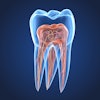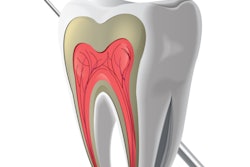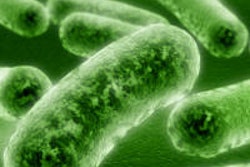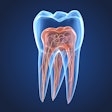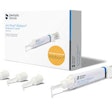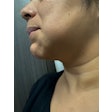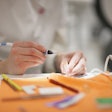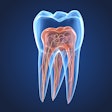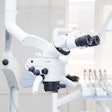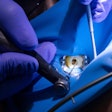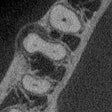Researchers from the Hebrew University of Jerusalem Faculty of Dental Medicine have proposed a way to turn the tables on harmful bacteria that infect humans, by infecting the bacteria with tiny viruses called bacteriophages.
One such virus, cultivated from Jerusalem sewage, may help prevent infections following dental procedures, such as root canals (Applied and Environmental Microbiology, February 6, 2015).
Bacteriophages, or phages, are viruses that infect bacteria. Phages play a key role in maintaining the natural balance in their predator-prey relationship with bacteria. They coevolved with their bacterial hosts to be highly effective specific "professional bacterial killers," according to the researchers.
They have identified a way to use phage therapy to target Enterococcus faecalis biofilms. E. faecalis is a highly durable bacterium strain and is especially hard to target when grouped in a sticky bacterial cluster called biofilm. E. faecalis is often recovered from persistent infections associated with root canal treatments, and infection may persist in 20% to 33% of root canals.
The researchers isolated an anti-E. faecalis phage from sewage effluents retrieved from a Jerusalem sewage treatment facility. The phage, named EFDG1, is capable of infecting the V583 strain of E. faecalis, which is resistant to vancomycin, the most effective anti-E. faecalis antibiotic.
The team evaluated EFDG1's efficacy against E. faecalis cells both in a liquid culture and in biofilm form. Since there are currently no effective ways to eradicate E. faecalis biofilms, the researchers' goal was to target E. faecalis in its most robust form, as a biofilm.
In both cases, EFDG1 almost entirely eradicated the bacterial cultures. The phage was found to be highly efficient against various E. faecalis and E. faecium isolates, regardless of their antibiotic resistance profile.
Moreover, the researchers showed that EFDG1 was highly effective in root canal infection, both in vitro and ex vivo in tissue samples. These findings suggest that phage therapy using EFDG1 might be an effective way to prevent E. faecalis infection following root canal procedures.
To see whether the EFDG1 is safe to use in fighting E. faecalis infections in humans, the researchers examined EFDG1 phages for the presence of hazardous genes. By visualizing the phage using electron microscopy, followed by whole genome sequencing, the researchers found that it belongs to the Spounavirinae subfamily of the Myoviridae phages, which include other promising candidates for therapy against gram-positive pathogens. Moreover, they found that the EFDG1 genome does not contain apparent harmful genes.
The idea of using phages as antibacterial drugs is not new. According to one of the researchers, phage therapy was first proposed at the start of the 20th century, but then abandoned for various reasons, including the striking success of chemical antibiotics.
"Now we stand on the verge of a new era with the limitations of synthetic antibiotics and the emergence of antibiotic-resistant strains of bacteria," stated study author and lead researcher Ronen Hazan, PhD, from the Israeli Institute for Advanced Research, in a press release. "Thus, it is the right time to look again into what Mother Nature offers in the battle against bacteria. As this research shows, bacteriophages may prove an effective tool in the development of much-needed new antimicrobial drugs."

